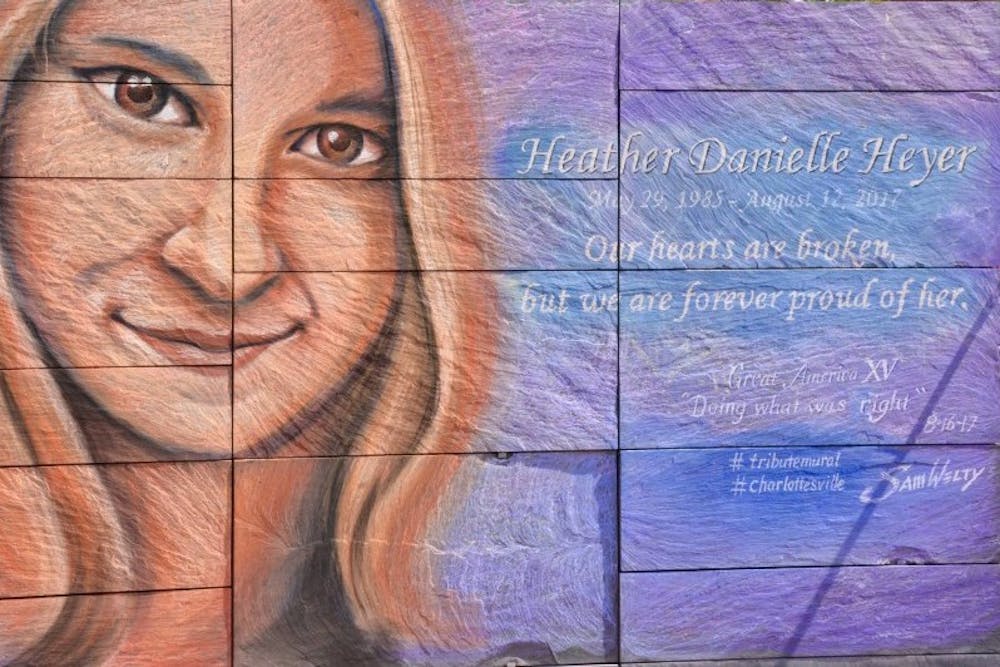One alumna and two non-alumni of the University have donated a combined $100,000 to create a Bicentennial Scholarship in honor of Heather Heyer. The University’s Bicentennial Scholarship Fund matched the donation with $50,000.
Heyer was a Charlottesville-area resident who was killed in the Aug. 12 car attack on the Downtown Mall during the violent “Unite the Right” rally. At least 35 other people were injured in the incident.
The Heather Heyer scholarship will give about $5,000 a year to students with demonstrated need, according to Mark Luellen, the University Vice President for Advancement.
“Several donors stepped forward and have completed pledges to us for a scholarship in her [Heather Heyer’s] name in the amount sufficient to qualify for the Bicentennial Endowed Scholarship Fund,” University President Teresa Sullivan said at the Sept. 15 Board of Visitors meeting when she announced the scholarship.
The scholarship is part of the University’s Bicentennial Scholarship Fund, which was founded last December. Through the endowment, the University promises to match any donation of $100,000 or more by half. Donations over $1 million will be matched dollar-for-dollar over a five-year period.
The Bicentennial Scholarship Fund can match funds because of the Strategic Investment Fund which has $100 million set apart for the Bicentennial Scholarship Fund.
“To date, nearly $40 million in verbal and signed commitments have been secured for scholarships in nine months,” Luellen said in an email. “When you apply the matching funds, this initiative has created scholarship endowments totaling approximately $75 million.”
Luellen also said the endowment could grow to as large as $300 million for scholarships between the $100 million available for matching funds and donations up to $200 million. The $100 million of matching funds are available as long as there is still money to match committed funds or until the five year timeline of the Bicentennial Scholars Fund runs out.
He said through investment returns, the endowment has the possibility of expanding.
This is not the first fund named in honor of an individual — Politics Prof. Larry Sabato also established a Bicentennial Scholarship Fund in honor of former University administrator Leonard Sandridge and his wife Jerry.
The Heather Heyer Foundation, a Charlottesville nonprofit organization, will also offer additional scholarship opportunities in commemoration of Heyer.
“The Heather Heyer Foundation was created to honor Heather Heyer, a young civil rights activist, who dedicated her life to promoting equal rights for all people,” the Foundation’s homepage said. “The Foundation has established a scholarship program to provide financial assistance to individuals passionate about positive social change.”
The foundation’s specific scholarship wishes to help law students, paralegals and other advocates who proactively lend a helping hand to those in need.
“Heather was a young woman who was deeply involved in taking a stand against injustice when she didn’t have to do so,” the foundation’s webpage says.
The Heather Heyer Foundation did not respond to request for comment.







